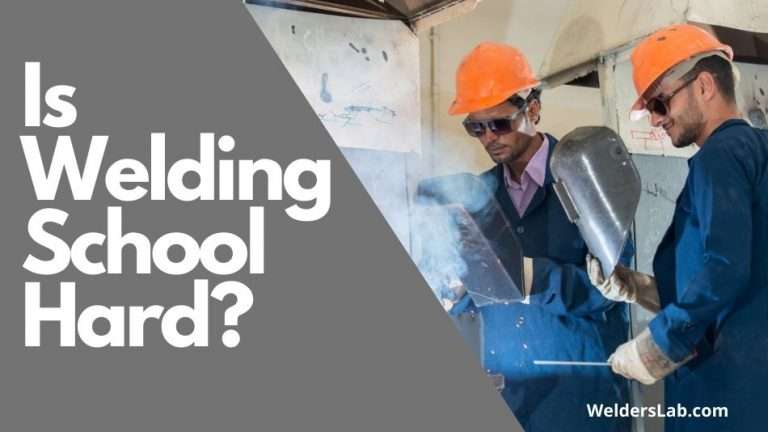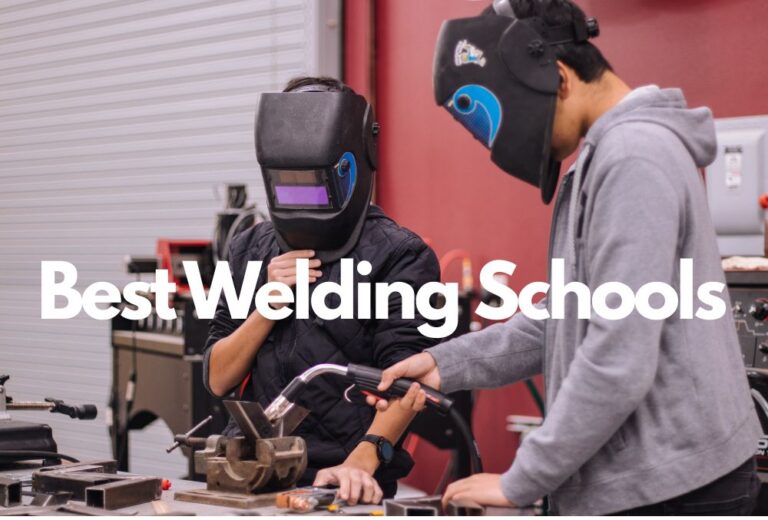How Long Does It Take to Go to Welding School?
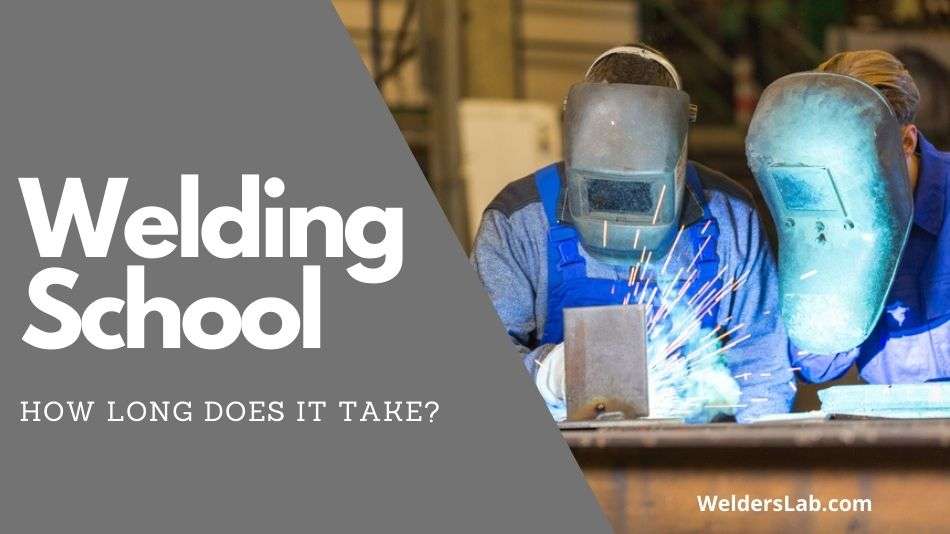
When manufacturers, construction companies, and shipbuilders hire welders, they want employees who are skilled and certified. All of these fields require quality, skilled people who can weld in a variety of ways, and a welding vocational school is the best way to do it. The question is how long do programs like this take?
So, how long does it take to go to welding school? Welding school will last anywhere from 6 to 24 months. For structural welding programs, you’re looking at a 24-week program, whereas pipe welding programs will last up to 45 weeks, and underwater welding will last 7 months. If you take a combined pipe and structural welding program, you’re looking at 40 weeks.
Whether you want to be a structural welder, a pipe welder, a combination welder, or an underwater welder, each class has its own set of standards. In this article, we will explain how long it will take to go to welding school, what you will learn when you get there, and all the benefits of becoming a certified welder.
You will learn that there are a lot of details about welding professionally that you will need to know. Safety requirements, material handling, and all the many different types of professional welding equipment. It is because of all the information you have to know that you are probably wondering how long it takes to go to welding school.
4 Types of Welding Programs
#1 Pipe Welding Program
Program Duration: 30 to 45 Weeks
Recommended Program: Hobart Institute of Welding Technologies
If you want to be a pipe welder, your training can be anywhere from 30 – 45 weeks. You can receive the training from a vocational school or community college.
Your training time can vary based on whether you want to learn about shielded metal or gas tungsten arc welding. At the end of your course, you will receive a diploma or certificate that you can use to find employment in this lucrative field.
This job will entail working on oil and gas pipelines, repairing and adding new lines.
#2 Structural Welding Program
Program Duration: 24 Weeks
Recommended Program: Hobart Institute or Welding Technologies
For structural welding, you can expect 24 weeks of training. A certificate for structural welding is a valuable credential. You can go directly to a welding school or to your local college to obtain the training.
A structural welding job can lead to a long and rewarding career, but keep in mind that some companies may require on the job training or additional certifications.
#3 Combination Structural and Pipe Program
Program Duration: 40 Weeks
Recommended Program: Hobart Institute of Welding Technology
A combination of welder certification is the next logical step. To become a combination welder takes 40 weeks of class. You will be trained in a variety of welding processes.
Once you have received your diploma or certificate, you can begin to look for a job. Combination welders are needed in the automotive industry, construction industry, and aerospace industr,y to name a few.
#4 Commercial Diving and Welding Program
Program Duration: 7 to 24 Months
Recommended Program: Diver Institute of Technology
If welding underwater thrills you this program is for you. This program will teach you to dive up to 165′ and work underwater to fix and weld almost anything in the commercial area, from cruise ships to oil tankers.
As with all welding certifications, you must have a high school diploma or GED to become an underwater welder. You will also need a standard welder training certificate.
Training to become an underwater welder will take anywhere from 7 – 24 months. It is an in-demand job for which you will also require diver training. The unique requirements of underwater welding make this a lucrative career path.
What Do You Learn at a Welding School
So, you have chosen to go to welding school, and you’re curious about what you’re going to learn.
At a good welding school, you’re going to learn the fundamentals of welding. You are going to get a basic understanding of how welding works, what materials are used in welding, and the fundamentals of safety and best practices.
You will also learn about the basic types of welding. Each type of welding has its own set of standards and concepts you will have to learn as well.
Depending on what type of welding course you take, you will learn a variety of skills.
Pipe Welding
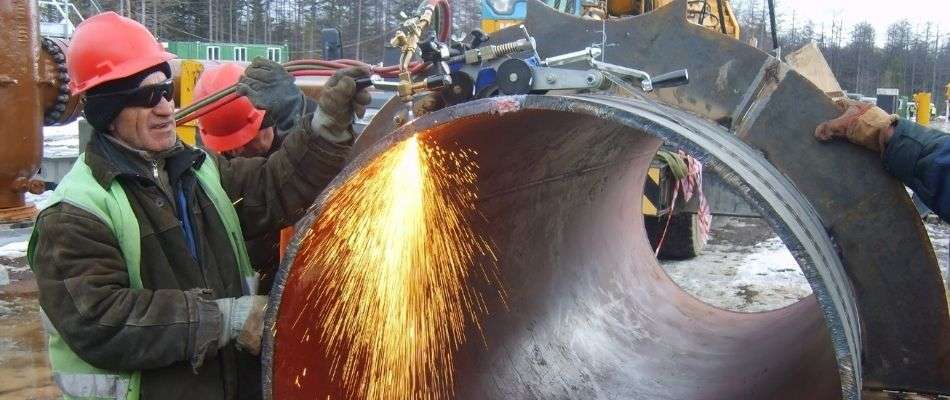
In a pipe welding certification course, you will learn the fundamentals of pipe welding. Some programs will focus on specific industries like maritime pipe welding.
You will learn how to use a variety of equipment and welding materials. You will also learn the fundamentals of welding safety and equipment handling.
When you are finished, you will be able to apply for an entry-level position as a pipe welder.
Structural Welding
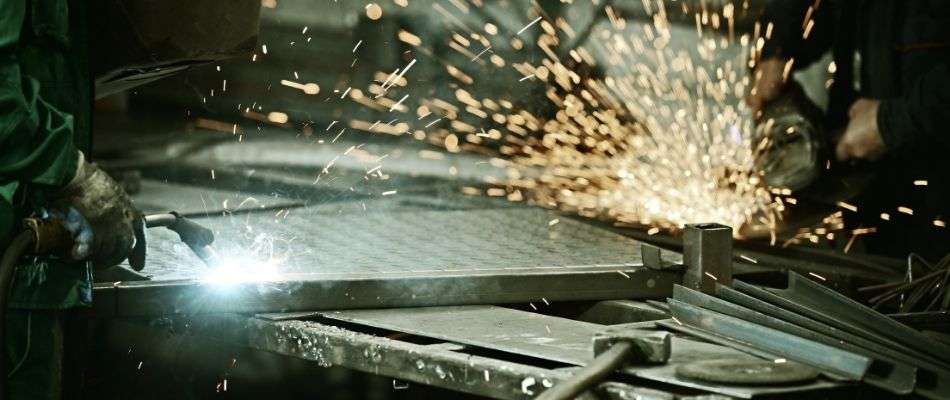
In a course on structural welding, you will learn the fundamentals of welding, how to read a blueprint, and how to use a variety of welding materials.
You will also learn about welding, cutting, and braising with oxyacetylene. Basic and advanced training in shielded metal arc welding, gas tungsten and gas metal arc welding, and flux-cored arc welding.
They will also teach you about the safe operation of various welding equipment. They may also offer lessons in career planning and choosing the right path for you.
Underwater Welding
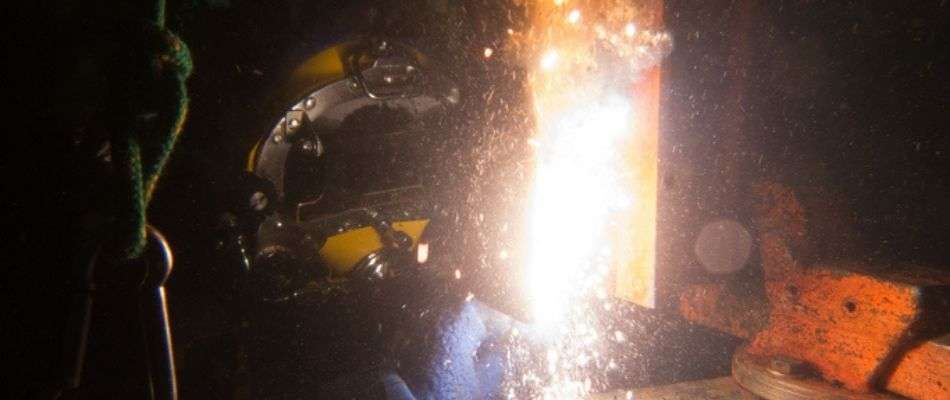
If you are planning on becoming an underwater welder, you will learn a variety of new skills. Some of those skills include fundamentals of welding, safety, and procedures of welding in open water, as well as cutting and burning underwater.
You will also learn how to work safely in a variety of underwater environments, including inland bridge inspections and offshore welding for oil platforms.
Depending on the industry segment you are going into, there may be other specific concepts and techniques upon which you will be educated.
What are the benefits of going to a welding school?
There are so many benefits of going to welding school, even if you already know how to weld. That is right, some people already know how to weld.
Maybe they learned in a shop class, or maybe someone taught them. But if you want to make a career out of welding, you probably want to investigate a good welding school in your area.
It is best to do your homework and pick the best school you can afford. Some schools offer financial aid, and that may be something you want to look into.
Benefit #1: Employers are Looking For Certified Welders
Since welding is a job with highly technical skills and safety concerns, employers often look for certified welders. Being a certified welder will increase your chances of landing a good job.
Certification not only prepares you for a long and successful career, but it also gives you the knowledge you need to be a consummate professional.
Everything you need to know about safety, technique, and professionalism will be on display with your certification. More importantly, you will have undeniable proof that you have the skills to pay the bills.
Benefit #2: You’ll Earn More When You’re Certified
Going to a welding school and becoming a certified welder will increase your value in the marketplace. That means you will have the opportunity to apply for high-dollar jobs.
If you reinvest in your education by increasing your certifications, you will increase your chances of commanding a top-dollar salary. Highly qualified, certified welders can indeed go all over the world.
They also get the best and highest-paying welding jobs. Welding is a lucrative career path. Even more so with quality training at a welding school.
Benefit #3: You’ll Get Hired Faster
There is no doubt that your chances of being hired increase dramatically if you complete your training at a welding school. Employers want to hire welders who are well-trained with hands-on experience.
While it’s true they may require some additional training to meet their company’s requirements, as a certified welder who has gone through a reputable training program, you will be shortlisted.
When you apply for welding school that you seek out highly-rated programs. Employers generally know the best welding schools in your area.
If you apply for a job and have a certification from one of them, your chances of being hired will increase.
Final Thoughts…
As you have learned here that all depends on what type of welding you want to do. It may also have to do with the industry in which you want to weld. It may also be a regional concern. If you live on the Gulf Coast of the United States, underwater welding would be a great skill to have.
Many shipbuilding companies and oil companies are working in the Gulf Coast region. They use a lot of underwater welders. If you live somewhere with a lot of oil pipelines, clearly you want to learn pipe welding.
Taking a course in pipe welding and completing the certification will be a powerful first step in a successful career as a professional welder in the oil field pipeline industry.
However, you choose to go forward, rest assured, there are a lot of opportunities out there for certified welders. If you have gone to a welding school and received certification, you are all but guaranteed to find work.
Research the type of company you want to work for, find out if they have additional certifications you will need, or if they need you to train on their job sites.
Pay attention to what you learn and what is happening in the industry so you can communicate with the hiring managers effectively, and you will do well.

